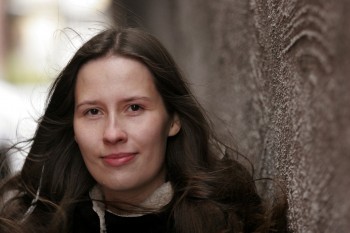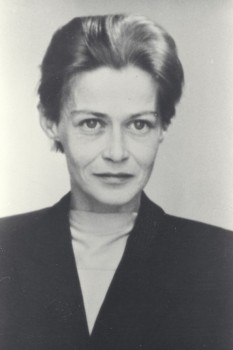Search results for "vilja-tuulia huotarinen"
Vilja-Tuulia Huotarinen: Valoa valoa valoa [Light light light]
13 January 2012 | Mini reviews, Reviews
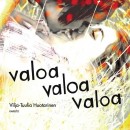 Valoa valoa valoa
Valoa valoa valoa
[Light light light]
Hämeenlinna: Karisto, 2011. 125 p.
ISBN 978-951-23-5433-7
€ 19.95, paperback
Vilja-Tuulia Huotarinen’s novel for young adults demonstrates the author’s familiarity with classic books for girls, her skill in plotting, and, above all, her respect for youth on its own, unique terms. The novel is set in the summer and autumn of 1986. A nuclear explosion occurs at Chernobyl, Ukraine, in spring, and the fall-out worries 14-year old Mariia, who lives on the outskirts of Turku. She befriends Mimi, who has a dark secret in the attic. The friendship between the two girls soon deepens into love, and is described by Huotarinen (born 1977) beautifully and openly. Huotarinen’s language is colloquial, but nevertheless highly lyrical. Valoa valoa valoa promises a revival in the Finnish novel for young adults; it does not wallow in youthful angst or ‘issues’, although the story touches on these things, too. Self-conscious narration, metafiction, adds another intriguing twist to the story.
Translated by Fleur Jeremiah and Emily Jeremiah
Vilja-Tuulia Huotarinen: Kimmel
5 February 2015 | Mini reviews, Reviews
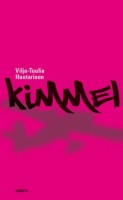 Kimmel
Kimmel
Hämeenlinna: Karisto, 2014. 120 pp.
978-951-23-5840-3
€22.90, hardback
In Kimmel, Vilja-Tuulia Huotarinen, known also for her poetry, presents no fewer than 12 teenage girls whose fates are left to be pondered long after the story is completed. Kimmel is a girl hero whose parents place the rescue of the entire planet on her shoulders. She has no doubt she will succeed in her task. She acquires a small pink airplane decorated with glitter – even though ‘there’s really nothing soft and pretty and hello-kitty about sixteen year olds’. For her companion on this epic trip Kimmel gets an interactive night book that empathises with her feelings and sometimes gives her concrete advice. Kimmel can be seen as a modern version of classic girl’s books – the author plays with girl’s book clichés but challenges the reader to think about myths of womanhood and the limits set by society. Huotarinen writes about the explosions of joy and the depths of sadness in girlhood with magical poignance and poetry.
Translated by Lola Rogers
Once upon a time…
13 January 2012 | Articles, Non-fiction
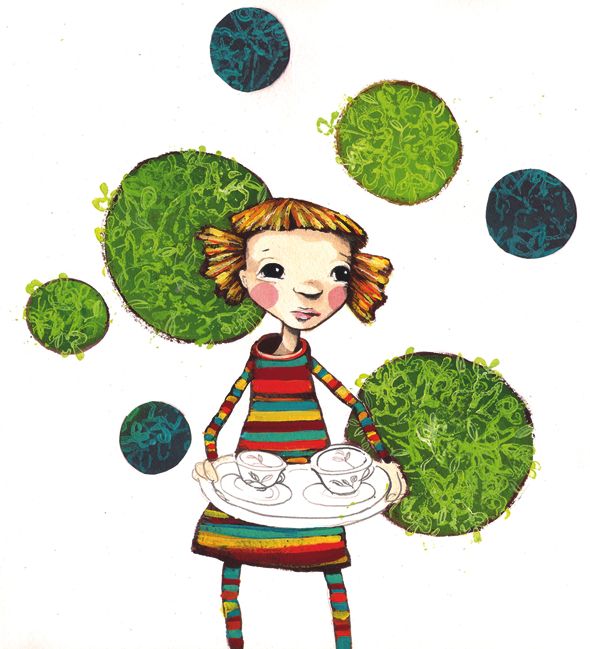
Sari Airola's illustration in Silva och teservisen som fick fötter (‘Silva and the tea set that took to its feet’, Schildts) by Sanna Tahvanainen
The future of book publishing is not easy to predict. Books for children and young people are still produced in large quantities, and there’s no shortage of quality, either. But will the books find their readers? Päivi Heikkilä-Halttunen takes a look at the trends of 2011, while in the review section we’ve picked out a selection of last year’s best titles
The supply of titles for children and young adults is greater than ever, but the attention the Finnish print media pays to them continues to diminish. Writing about this genre appears increasingly ghettoised, featuring only in specialist publications or internet chat rooms and blogs.
Yet, defying the prospect of a recession, Suomen lastenkirjakauppa, a bookshop specialising in children’s literature, was re-established in central Helsinki in autumn 2011, following a ten-year break. Pro lastenkirjallisuus – Pro barnlitteraturen ry, the Finnish society for the promotion of children’s literature, has been making efforts to found a Helsinki centre dedicated to writing and illustration for children. The society made progress in this ambition when it organised a pilot event in May 2011. More…
Thirsty for poetry
22 May 2014 | This 'n' that
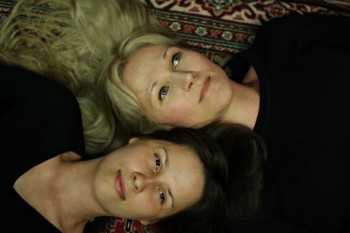
Johanna Venho (above) and Vilja-Tuulia Huotarinen. Photo:
Jano (‘Thirst’) is the name for a new online magazine: according to the writers and poets Johanna Venho and Vilja-Tuulia Huotarinen, its editors, it is a ‘poetry journal for all’ – for poets, the general public, for anybody.
Two issues have been published since November 2013. The theme of the first one is Time, of the second, Place.There are interviews, autobiographical texts, texts by critics and poets. More…
Finlandia Junior Prize 2011
7 December 2011 | In the news
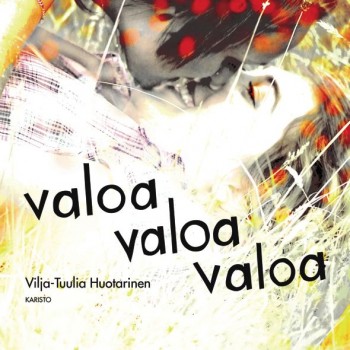 The musician Paula Vesala has chosen, from a shortlist of six, a book for young people by the poet Vilja-Tuulia Huotarinen, Valoa valoa valoa (‘Light light light’, Karisto). The story, which is set at the time of the Chernobyl nuclear power station disaster, poetically describes the passion and pain of first love, longing for mother and death.
The musician Paula Vesala has chosen, from a shortlist of six, a book for young people by the poet Vilja-Tuulia Huotarinen, Valoa valoa valoa (‘Light light light’, Karisto). The story, which is set at the time of the Chernobyl nuclear power station disaster, poetically describes the passion and pain of first love, longing for mother and death.
‘Not just what is told, but how it is told. The rythm and timbre of Vilja-Tuulia Huotarinen’s language are immensely beautiful. Her phrases do not exist merely to tell the story, but live like poetry or song. Valoa valoa valoa does not incline toward young people from the world of adults; rather, its voice comes, direct and living, from painful, confusing, complex youth, in which young people should really be protected from adults and their blindness. I would have liked to read this book when I was fourteen,’ commented Vesala.
The other five shortlisted books were a picture book for small children, Rakastunut krokotiili (‘Crocodile in love’, Tammi) by Hannu Hirvonen & Pia Sakki, a philosophical picture book about being different and courageous entitled Jättityttö ja Pirhonen (‘Giant girl and Pirhonen’, Tammi) by Hannele Huovi and Kristiina Louhi; a dystopic story set in the 2300s, Routasisarukset (‘Sisters of permafrost’, WSOY), by Eija Lappalainen & Anne Leinonen; a novel about the war experiences of an Ingrian family, Kaukana omalta maalta (‘Far away from homeland’, WSOY) by Sisko Latvus and an illustrated book about gods and myths of the world, Taivaallinen suurperhe (‘Extended heavenly family’, Otava) by Marjatta Levanto & Julia Vuori.
The prize, awarded by the Finnish Book Foundation on 23 November, is worth €30,000.
Face, book
23 June 2011 | Letter from the Editors

What are books made of? Picture: Wikipedia
‘The worst of all is if the writer forgets writing and starts turning out books.’
This thought is from the poet Vilja-Tuulia Huotarinen’s introductory talk at the Lahti International Writers’ Reunion (LIWRE), which took place at Messilä Manor between 19 and 22 June. ‘There’s too much talk of the stunting of the book’s lifespan and the economic life of the publishers,’ she continues. A writer ‘must not forget that he or she is responsible to the work of art, nobody else, not even the readers.’
Today, book publishers are responsible to capital and productivity, and a work of literature resembles a product with an invisible best-before marker. Is its life a couple of months, like ice cream? Books delivered to the shop in September are already old-hat in February, and are best put on sale. More…
Asking for more
14 April 2010 | Fiction, poetry
The heroines in Vilja-Tuulia Huotarinen’s new collection, Iloisen lehmän runot (‘Happy cow poems’, 2009), are timeless creatures, mythical and archaic, and yet our contemporaries, living their lives alongside us (see Ruminations)
Let the cows out on Monday
and they’ll enter the forest, wander far
aim for the waterfalls, the hole in the rock and down the precipice.
The dead come back along our the road to our yard:
Rebecca, Isolde, Rosamunda.
Allison, Eulalia, Euphrosyne.
Not as ghosts but as old friends.
Whom will they, the wingless ones, protect here?
A lean lass, a lean lass. More…
Genuine beauty
14 February 2013 | Fiction, Prose
Erään ihailijan päiväkirjasta (‘From the diary of an admirer’), a story published in the collection of short prose Taskunovellit (‘Pocket stories’, edited by Vilja-Tuulia Huotarinen; Karisto, 2013)
10.6.
Dear Diary, I have met a wonderful man. He is tender, handsome and clever. It is a real piece of luck that fate didn’t throw us together until now: I’m embarrassed at the very thought that he might have seen me a couple of years ago, as an immature and childish sixth-former. His name is Petri Tamminen and he’s a writer. Writers are gorgeous. Not all of them, of course, some of them think too much of themselves and appear e.g. on television, but Petri is gorgeous.
15.6.
Dear Diary, he has shown me the road to a new world: we went to the Åland islands. Petri doesn’t like Helsinki, he wants to get away from the beaten track of everyday life. The sun sank into the horizon at Eckerö, and my soul floated up into the summer night. This is love. In the morning, in the hotel bed, he recited a poem for me. I have read all his novels and I know that one day they will receive the recognition they deserve, but in his deepest self he is a poet.
16.6.
Dear Diary, we went fishing. Petri caught a sea-trout. It was enormous. He gathered herbs from a shoreline meadow, seasoned the fish and baked it over the embers. We ate with our fingers, fed each other. Delicious. Certain much weaker chefs try to make their names by preparing food e.g. on television. Losers. More…
In memoriam Herbert Lomas 1924–2011
23 September 2011 | In the news

Herbert Lomas. Photo: Soila Lehtonen
Herbert Lomas, English poet, literary critic and translator of Finnish literature, died on 9 September, aged 87.
Born in the Yorkshire village of Todmorden, Bertie lived for the past thirty years in the small town of Aldeburgh by the North Sea in Suffolk. (Read an interview with him in Books from Finland, November 2009.)
After serving two years in India during the war, Bertie taught English first in Greece, then in Finland, where he settled for 13 years. His translations – as well as many by his American-born wife Mary Lomas (died 1986) – were published from as early as 1976 in Books from Finland.
Bertie’s first collection of poetry (of a total of ten) appeared in 1969. His Letters in the Dark (1986) was an Observer book of the year, and he was the recipient of several literary prizes. His collected poems, A Casual Knack of Living, appeared in 2009.
In England Bertie won the Poetry Society’s 1991 biennial translation award for one of his anthologies, Contemporary Finnish Poetry. The Finnish government recognised his work in making Finnish literature better known when it made him a Knight First Class of Order of the White Rose of Finland in 1987.
To Books from Finland, he made an invaluable contribution over almost 35 years – an incredibly long time in the existence of a small literary magazine. The number of Finnish authors and poets whose work he made available in English is countless: classics, young writers, novelists, poets, dramatists.
Bertie’s speciality was ‘difficult’ poets, whose challenge lay in their use of end-rhymes, special vocabulary, rhythm or metre. He loved music, so the sounds and tones of words, their musicality, were among the things that fascinated him. Kirsi Kunnas’ hilarious, limerick-inspired children’s rhymes were among his best translations – although actually nothing in them would make the reader think that the originals might not have been written in English. A sample: There once was a crane / whose life was led / as a uniped. / It dangled its head / and from time to time said:/ It would be a pain / if I looked like a crane. (From Tiitiäisen satupuu, ‘Tittytumpkin’s fairy tree’, 1956, published in Books from Finland 1/1979.)
Bertie also translated work by Eeva-Liisa Manner, Paavo Haavikko, Mirkka Rekola, Pentti Holappa, Ilpo Tiihonen, Aaro Hellaakoski and Juhani Aho among many, many others; for example, the prolific writer Arto Paasilinna’s best-known novel, Jäniksen vuosi / The Year of the Hare, appeared in his translation in 1995. Johanna Sinisalo’s unusually (in the Finnish context) non-realist troll novel Ennen päivänlaskua ei voi / Not Before Sundown, subsequently translated into many other languages, appeared in 2003. His last translation for Books from Finland was of new poems by Vilja-Tuulia Huotarinen in 2009.
It was always fun to talk with Bertie about translations, language(s), writers, books, and life in general. He himself said he was a schoolboy at heart – which is easy to believe. He was funny, witty, inventive, impulsive, sometimes impatient – and thoroughly trustworthy: he just knew how to find the precise word, tone of voice, figure of speech. He had perfect poetic pitch. As dedicated and incredibly versatile translators are really hard to find anywhere, we all realise our good fortune – both for Finnish literature and for ourselves – to have worked, and enjoyed with such enjoyment, with Bertie.
Poet Aaro Hellaakoski (1893–1956) was not a self-avowed follower of Zen, but his last poems, in particular, show surprisingly close contacts with the philosophy. ‘Secrets of existence are revealed once one ceases seeking them’, the literary scholar Tero Tähtinen wrote in an essay published alongside Bertie’s new Hellaakoski translations in (the printed) Books from Finland (2/2007). Bertie was fond of Hellaakoski, whose existential verses fascinated him; among his 2007 translations is The new song (from Vartiossa, ‘On guard’, 1941):
The new song |
Uusi laulu |
| No compulsion, not a sting. | Ei mitään pakota, ei polta. |
| My body doesn’t seem to be. | On ruumis niinkuin ei oisikaan. |
| As if a nightbird started to sing | Kuin alkais kaukovainioilta |
| its far shy carol from some tree – | yölintu arka lauluaan |
| as if from its dim chrysalis | kuin hyönteistoukka heräämässä |
| a little grub awoke to bliss – | ois kotelossaan himmeässä |
| or someone struck from off his shoulder | kuin hartioiltaan joku loisi |
| a miserable old bugaboo – | pois köyhän muodon entisen |
| and a weird flying creature | ja outo lentäväinen oisi |
| stretched a fragile wing and flew. | ja nostais siiven kevyen. |
| Ah limitless bright light: | Oi kimmellystä ilman pielen. |
| the gift of lyrical flight! | Oi rikkautta laulun kielen. |
Boys Own, Girls Own? –
Gender, sex and identity
30 December 2008 | Essays, Non-fiction
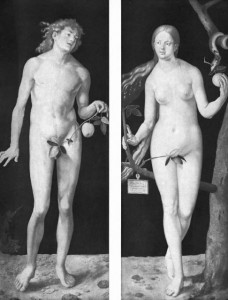
Knowing good and evil: Adam and Eve (Albrecht Dürer, 1507)
In Finnish fiction of the present decade, both in poetry and in prose, there seems to be at least one principle that cuts across all genres: an overt expression of gender, writes the critic Mervi Kantokorpi in her essay
Relationships and family have always been central concerns of literature; questions about gender and individual identity have received a new emphasis in Finnish literature from one season to the next. The gender roles represented in contemporary literature appear to become ever more stereotypical. The question is no longer only of the author consciously setting his or her gender up as the starting point for expression, as has already long been the case with modern literature written by women. More…
Ordinary people
30 June 1990 | Archives online, Fiction, poetry
Poems from Vaikka aamuun on vielä aikaa (‘Though it’s still a long time till morning’, 1989) Introduction by Risto Rasa
This time
this time of consensus
that teaches
the poor to love the prosperous,
the bossed to love the bossers
the kicked to love the kickers
and all of us to love humility
obedience and biddability
before the hingdom, the power and the glory:
this time
cries out for a tearer-up,
calls for a muster
of thousands and thousands
of serious and honest busters. More...
Pauliina Rauhala: Taivaslaulu [Heaven song]
12 December 2013 | Mini reviews, Reviews
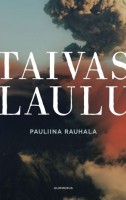 Taivaslaulu
Taivaslaulu
[Heaven song]
Helsinki: Gummerus, 2013. 281 pp.
ISBN 978-951-20-9128-7
€29.90, harcback
A religious revivalist movement is the framework for this skilfully written first novel. A young couple, Vilja and Aleksi, dream of a brood of children. Nine years and four children later Vilja feels that all joy and strength has drained away from her life. Living the reality of their religion’s ban on family planning, the couple is hit hard by the fact that Vilja is expecting twins. This is too much for her; she feels crushed by anxiety and fatigue. The ethical ground of parenthood, the good and bad sides of a religious community as well as the myths and expectations surrounding motherhood are Rauhala’s main themes. This impressive tale also contains a love story; Aleksi is a credible and sympathetic husband who first and foremost wants to believe in his wife and his family.
Siri Kolu: Me Rosvolat [Me and the Robbersons]
27 January 2011 | Mini reviews, Reviews
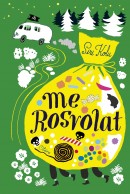 Me Rosvolat
Me Rosvolat
[Me and the Robbersons]
Kuvitus [ill. by]: Tuuli Juusela
Helsinki: Otava, 2010. 222 p.
ISBN 978-951-1-24393-9
€13.80, hardback
Me Rosvolat by Siri Kolu (born 1972), winner of the Finlandia Junior prize, is a clever combination of the spirit of the Norwegian children’s classic When the robbers came to Cardamom Town by Thorbjørn Egner and the fashionable road movie genre. A ramshackle gang of robbers kidnaps ten-year-old Vilja, who is in the middle of a holiday with her family. The Robbersons like to pounce, Robin Hood-like, on petty bourgeois types who ‘think they’re just regular people, but who’ve got plenty of nice things, like a car, good eats and clothes.’ In a carnival style that appeals to children’s sense of justice – and is reminiscent of Astrid Lindgren’s Pippi Longstocking – Kolu describes the Robberson family’s innocent-seeming raids on kiosks selling old-fashioned treats and the pick ‘n’ mix sections of video rental shops. Vilja and the Robberson family’s summer-long jaunt is filled with humour, sticky situations and thoughts on family relationships.
Translated by Ruth Urbom

